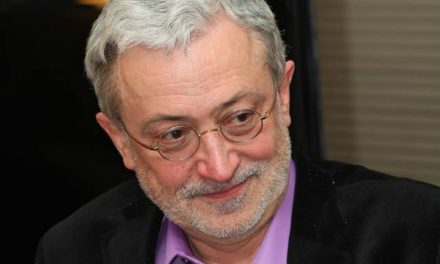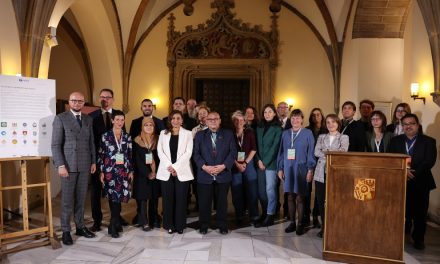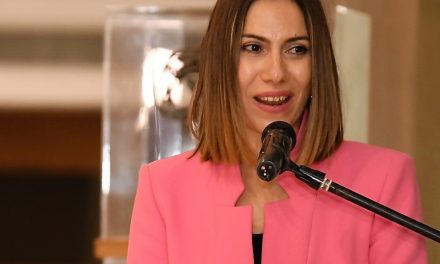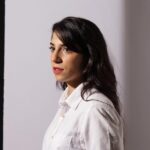The Centre of Greek and Arabic Literature and Culture (K.EL.A.L.P.), launched in 2020 by Persa Koumoutsi under the auspices of the civil non-profit organization CulturePolis, is an independent initiative whose aim is to promote and strengthen an open-to-all study of the two cultures towards a better understanding of “what unites us, rather than those that separate us” through research, analysis, discussion, and dialogue, as well as targeted actions and programs to inform/raise awareness of experts and the general public about Greek and Arabic literature, poetry and language. It should be noted that KELALP has undertaken the translation of 10 books by Arab writers into Greek within the framework of Sharjah being the guest of honour at the 20th Thessaloniki Book Fair.
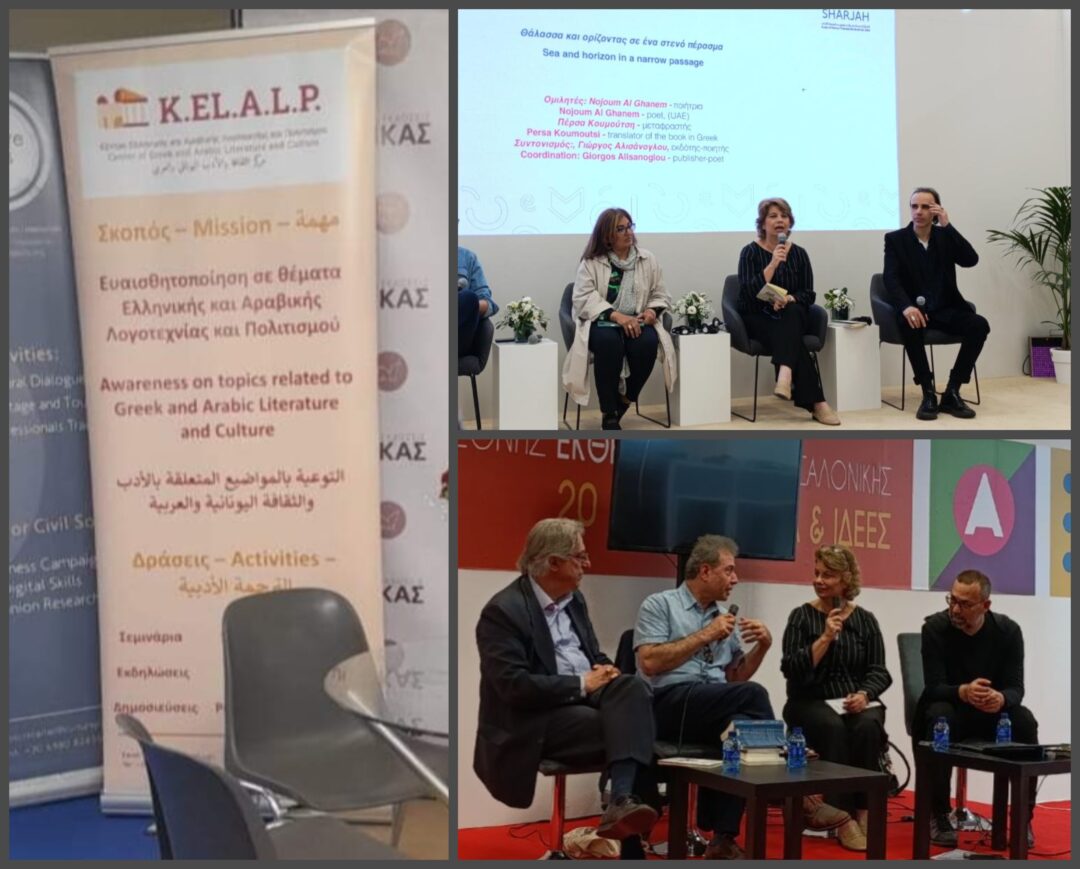
Reading Greece* spoke to Persa Koumoutsi about the role of KELALP at fostering understanding between Greek and Arabic language and literature, the challenges to be met in bringing together the two cultures, the crucial role of translators in this process and the prospects ahead.
How do initiatives such as KELALP contribute to fostering deeper understanding between Greek and Arabic language and literature?
As in Greece we lack a comprehensive department of Arabic studies at universities, initiatives such as KELAP help to fill a missing gap. This initiative by no means aims to replace academic studies, but it is a platform that raises awareness and visibly of both Arabic and Greek literature respectively with emphasis on poetry that is extremely underrepresented not only in Greece but in Europe in general.
What are the challenges to be met when introducing Arabic literature to European readers? And vice versa, what is that could make Greek literature appealing to the Arab world?
Arabic and Greek literature are still not widely appreciated in many areas of the world, which is basically due to language barriers. Greek, on one hand, was for a long period of time considered a relay language or in many cases still is; it is also spoken by very few around the world. At the same time, many are still prejudiced about Arabic literature in Europe and this is usually due to lack of knowledge and awareness and of course comprehensive studies on both sides. The same goes for Greek literature in the Arab world. Little do they know about our modern production, prose or poetry among others, and now we are just starting to know them better. Raising awareness and visibility for both languages and their respective literatures is very important and imperative, and this is basically what we are trying to do through meetings, presentations, interviews of writers in their native languages and events. We are so close geographically and yet so far.
What results have KELALP yielded so far? What are the prospects ahead? Are there new projects underway?
As you have kindly mentioned, KELALP started by launching many online reading events, meetings between Greek and Arab writers, and presentations of writers (even young writers and poets) on both sides, as well as renowned ones from different parts of the Arabic world, Greece, even Cyprus; they were initiatives which have opened a new channel of communication and were welcomed with enthusiasm. These series of events were held online because of luck of funds, but received a great deal of enthusiasm by the participants themselves as they had the chance to meet and talk to each other about their work, their aspirations etc, while they eventually also received the approval and support of major public institutions. They brought together the two cultures, which is rare or difficult to occur on a regular basis. All the events were held in two languages with parallel or at times simultaneous translation and of course most of them were recorded in our youtube channel for researchers and future translators of both languages.
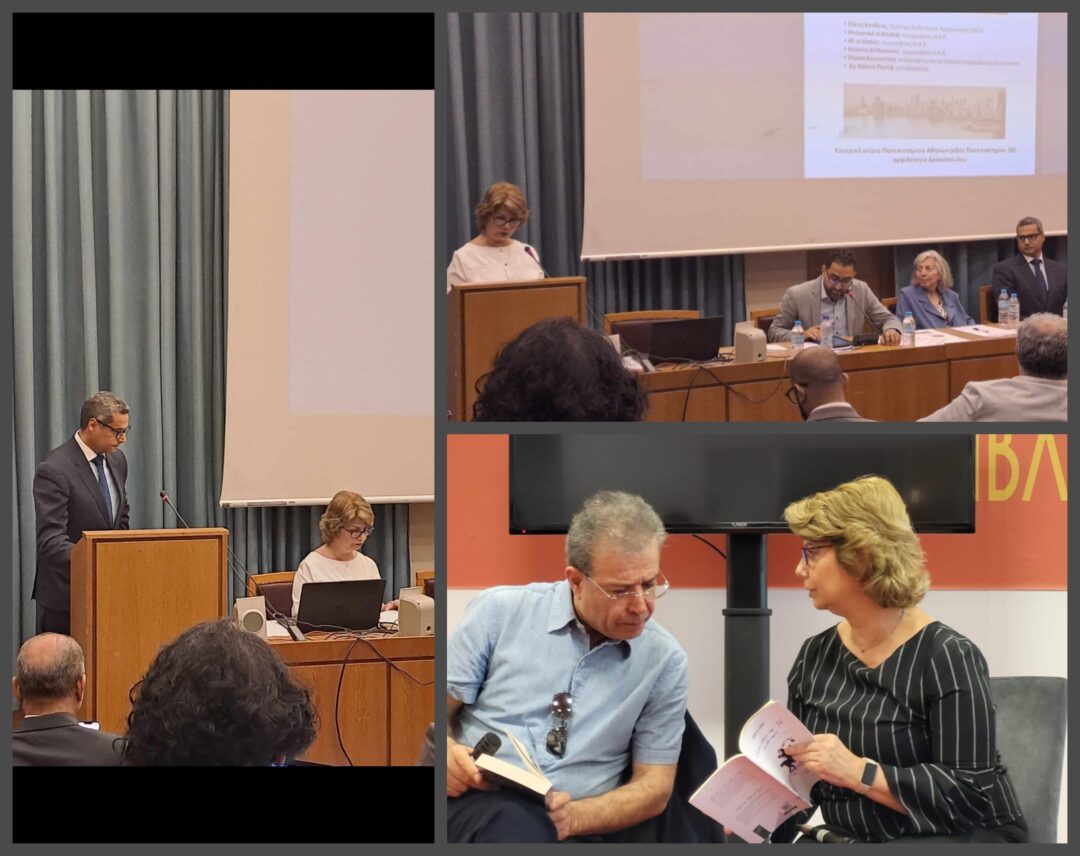
But we did not stop there. The poets that were invited on both sides were then translated in the target languages, both Greek and Arabic, and with the help of publishers we managed to publish their work individually, as in the cases of renowned poets Nouri al Jarrah, (Syria) Najwan Darwish, (Palestine),Amal al Joubouri, (Iraq) Nojoum al Ghanem (UAE), or in collective works, such as Iman Mirsal (Egypt), Alaa Khaled (Egypt), Lamia Makadam (Tunisia), Eisha al Seifi (Oman) also renowned and awarded poets, and many many others. We really hope, and it is among our future plans to present their personal collections. We are now working on the opposite idea, that is Greek poets being translated into Arabic both in collective works or through their personal collections. All these require time, a lot of personal and voluntary effort as now there is a constant demand for more translations of these people on both sides. In this magical voyage I should not neglect to mention CulturePolis that believed in my idea and gave me a platform to work on, and of course my colleague Khaled Raouf, translator of Greek literature into Arabic, who also supported me in materializing my objectives. With time more people expressed their wish to participate and join us, and the same goes for our ‘students’ who share our passion.
However, there is still a long way to go for this potential to develop even further and hopefully to be adopted by a larger institution or even a university. KELALP has also initiated – with the help and under the auspices of the Laboratory of Language and Politics of the Ionian University to whom I’ m sincerely thankful – a series of online seminars to both Arabic and Greek-speaking “students” who needed a platform to train or develop their skills on literary translation from and to both languages. Two years later we are already preparing to launch a collective work by our students. Especially those seminars were met with great appreciation by prospective translators of Arabic and Greek literature, as the participants were interested in both languages.
Last but not least, we are about to launch, along with the literary magazine “al Qassida” a new Poetry Award called “Meleagros”, in collaboration with other European cultural bodies that we shall be able to announce soon. Very briefly, it aims to honor outstanding poets of Mediterranean poetic expression, who have made a significant contribution to poetry and whose poetic experiences highlight the Mediterranean spirit, through contemporary poetic visions, aesthetics and universal ideals. It honors the memory and vision of Meleagros, the Syrian immigrant with Hellenistic culture and commitment to poetry. This is also an initiative that aims at strengthening cultural ties between the two areas and encourage translation projects between the two regions. I will be able to give you more details in the near future.
How crucial is the role of translation in fostering understanding between cultures and translators act as cultural ambassadors between countries?
Translation in general is the most significant channel of communication between languages and cultures. There is no way for us to learn about each other without the intermediary part, that is the part of translators, whose work is usually overlooked, or disregarded, even critically underpaid, and challenged at all times.
*Ιnterview by Athina Rossoglou
Read also: Reading Greece: Persa Koumoutsi on Greek-Arabic Cultural Encounters; Reading Greece: Khaled Raouf on the Promotion of Greek Literature in the Arab World; Reading Greece: Sharjah is the Guest of Honour at the 20th Thessaloniki Book Fair
TAGS: LITERATURE & BOOKS | READING GREECE

